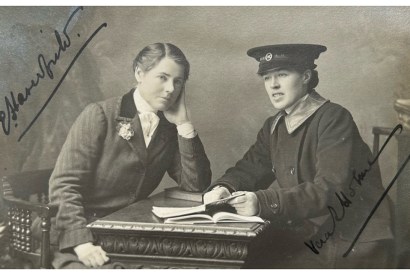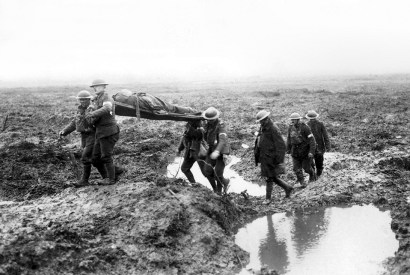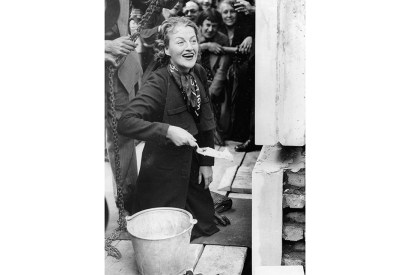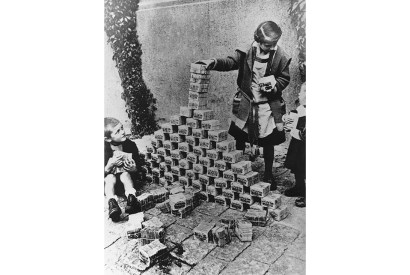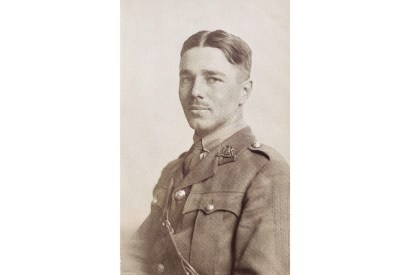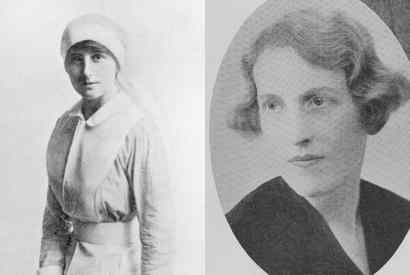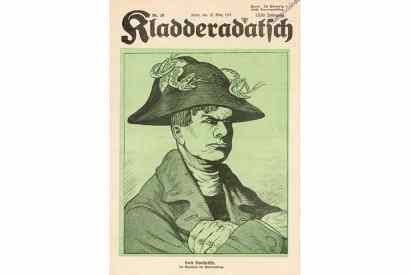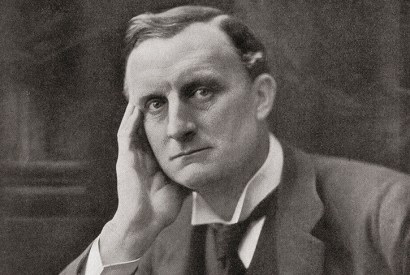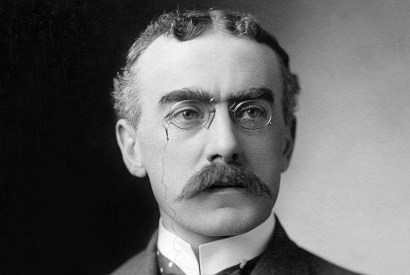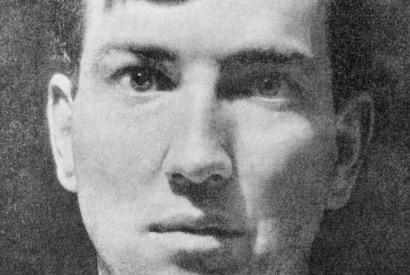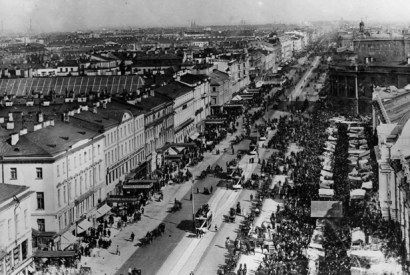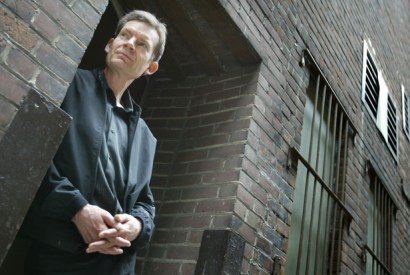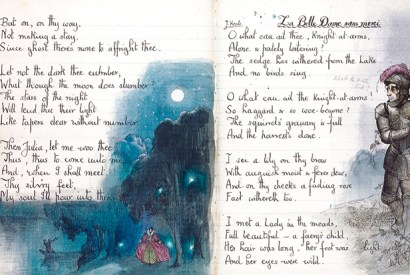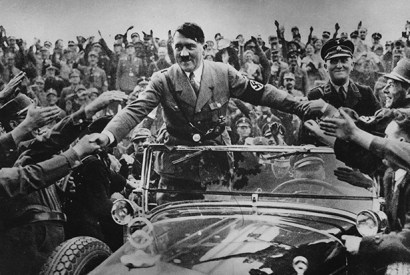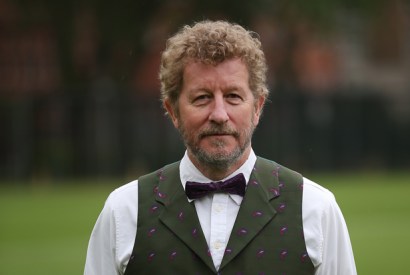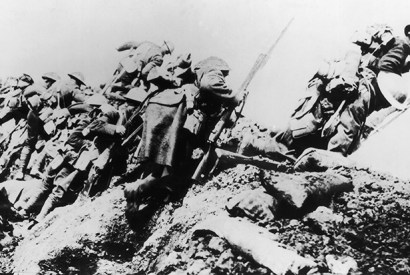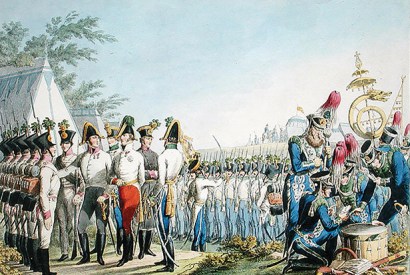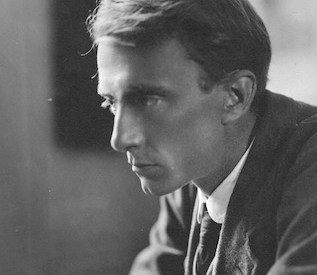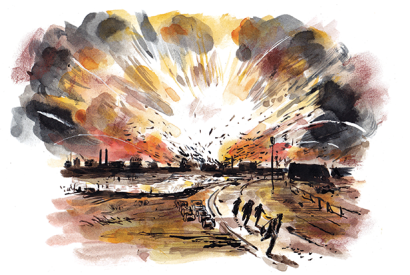the first world war
A romantic obsession: Precipice, by Robert Harris, reviewed
In the build-up to the Great War another drama unfolds, as the Prime Minister H.H. Asquith is seen to be distracted from politics by his infatuation with the beautiful Venetia Stanley
Can W.H. Auden be called a war poet?
Though Auden maintained that the Great War had little effect on him, its catastrophe haunts his early poetry and shaped his anxiety about what it meant to be English
The recklessness of George Mallory
Having quarrelled with his adept former fellow climber, Mallory attempted Everest in 1924 seriously ill-equipped, and taking an inexperienced 22-year-old with him instead
They felt they could achieve anything together: two brave women in war-torn Serbia
Vera Holme and Evelina Haverfield, lovers and fellow suffragettes, risked their lives as nursing staff in the first world war and exposed the absurdity of Edwardian homophobia
Longing for oblivion: The Warm Hands of Ghosts, by Katherine Arden, reviewed
Arden’s novel spares us no details of trench warfare on the Western Front and the severely traumatised men dreaming of escape into amnesia
Looking on the bright side
The Rochdale lass who sang her way from music hall to the silver screen encouraged a spirit of resilience and community in the interwar years, says Simon Heffer
A doomed democracy
Despite its democratic ideals and artistic creativity, 1920s Germany lacked both the flexibility and social cohesion necessary for functional politics, says Frank McDonough
The making of a poet: Wilfred Owen’s ‘autobiography’ in letters
How, between 1911 and 1917, Owen became the dazzling poet we know and love is the story told in Jane Potter’s new edition of his selected letters
Who needed who most? The complex bond between Vera Brittain and Winifred Holtby
Claudia FitzHerbert explores the complex bond between two remarkable writers in the interwar years
Lord Northcliffe’s war of words
Andrew Lycett on the pugnacious British press baron dedicated to fighting the first world war through newsprint
War was never Sir Edward Grey’s métier
This meaty but easily digested biography pivots around the events either side of that fateful evening of 4 August 1914…
A brutal education: At Night All Blood is Black, by David Diop, reviewed
Alfa Ndiaye, a Senegalese soldier fighting for France in the trenches of the Great War, is consumed by bloodlust, which…
Never a dull sentence: the journalism of Harry Perry Robinson
Is Boris Johnson a fan of Harry Perry Robinson? If he isn’t, he really ought to be. Reading this absorbing…
Ménage à quatre with Robert Graves
‘I have a very poor opinion of other people’s opinion of me — though I am fairly happy in my…
Sexual tension and Siberian magic mushrooms
On her arrival in Russia in 1914, Gerty Freely finds it refreshingly liberal compared to her native Britain: here servants…
T.E. Lawrence: from young romantic to shame-shattered veteran
T.E. Lawrence is seen as a ‘metaphor for imperialism, violence and betrayal’ in the Middle East. But woeful Arab leadership has also been to blame for the region’s problems, says Justin Marozzi
A fairytale return for Graham Swift
The opening of Graham Swift’s new novel clearly signals his intent. ‘Once upon a time’ tells us that this will…
Rex Whistler: ‘a desolate sense of loneliness amidst so much fun’
When Hugh and Mirabel Cecil’s book In Search of Rex Whistler was published in 2012, the late Brian Sewell reviewed…
What drove Europe into two world wars?
Sir Ian Kershaw won his knight’s spurs as a historian with his much acclaimed two-volume biography of Hitler, Hubris and…
Sebastian Faulks returns to the psychiatrist’s chair in Where My Heart Used to Beat
There can hardly be two novelists less alike than Sebastian Faulks and Will Self, in style and in content. Faulks…
The British army’s greatest catastrophe — and its most valuable lesson
Peter Parker spends 24 hours on the bloodsoaked battlefield of the Somme, scene of the British army’s greatest catastrophe
The honour of the Habsburgs was all that mattered to the imperial Austrian army
John Keegan, perhaps the greatest British military historian of recent years, felt that the most important book (because of its…
Edward Thomas: the prolific hack (who wrote a book review every three days for 14 years) turned to poetry just in time
Edward Thomas was gloomy as Eeyore. In 1906 he complained to a friend that his writing ‘was suffering more &…
Carnage on the home front: revisiting a forgotten disaster of the first world war
Philip Hensher on a little-known episode of first world war history when a munitions factory in Kent exploded in April 1916, claiming over 100 lives





